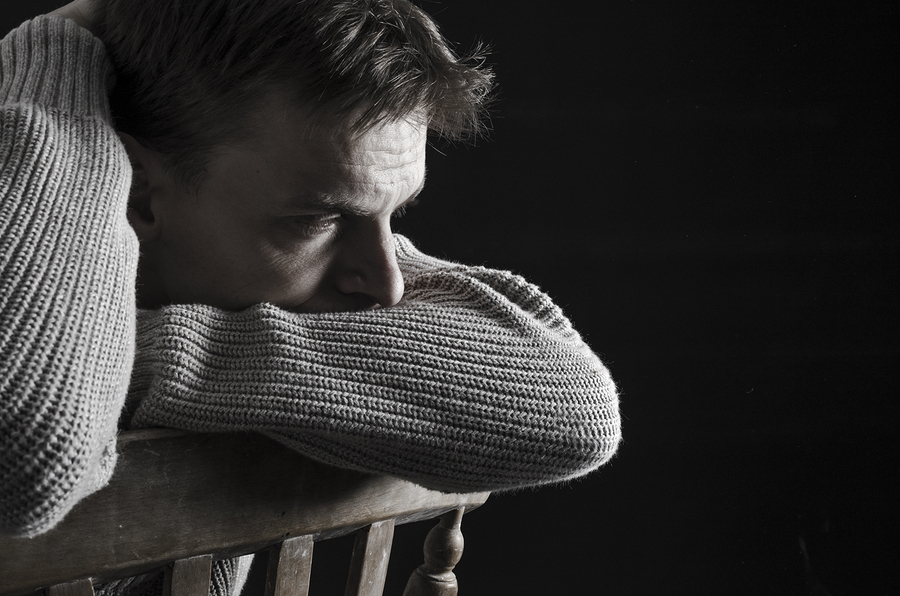
Bipolar disorder is a complicated mental illness and it often takes some time for people to be properly diagnosed. Even though most symptoms of bipolar disorder start to appear some time in adolescence or early adulthood, there are also cases of late onset of bipolar disorder. People who have symptoms starting later in adulthood, from their 50s on are considered to have late onset bipolar disorder.
Late onset bipolar disorder can be difficult to recognize but if you have been diagnosed with this problem then it is not too late to receive treatment. Many people who have bipolar disorder are misdiagnosed, especially older individuals whose symptoms may often be confused with other conditions. Between 5 to 10 percent of people with bipolar disorder will be at least 50 when they first begin to show symptoms of mania or hypomania.
Although it can be painful to accept that you have developed a mental illness later in life, being accurately diagnosed can be a powerful step in the right direction. Many people suffer for years with bipolar disorder but are not aware that this is the condition they have. Knowing that you have this disorder can help you learn more about it and find the right ways to manage your symptoms.
Understanding Bipolar Disorder
Most people understand very little about bipolar disorder and if you have spent most of your life without any mental illness symptoms then it might seem jarring to receive a diagnosis. It can be helpful to learn all you can about bipolar disorder including the typical symptoms and how they are usually treated. Educating yourself about your illness as you receive treatment can help you come to terms with the fact that you will live with it.
Bipolar disorder is a lifelong condition and not something that can be completely eliminated but the symptoms can be managed and minimized through the help of medication, psychotherapy and family support. People with bipolar disorder can lead very normal and stable lives, even if they have a late onset. It is very important to look into treatment options as soon as you are given a diagnosis so that you can start to manage the disorder and familiarize yourself with how it affects your life.
Bipolar disorder has two different phases that tend to shift back and forth for periods of weeks or months. There is the manic stage and the depressive stage, both of which can seriously interfere with a person’s daily life if they are not getting help and support from a therapist. Each stage has its own set of symptoms and someone with late onset bipolar disorder may experience the mood swings differently than someone younger.
Some of the symptoms of late onset bipolar disorder during a manic episode are:
- Confusion or disorientation
- Being easily distracted
- More energy and less need for sleep
- Irritability
A depressive episode for late onset bipolar disorder could include:
- Loss of interest in activities once enjoyed
- Feeling fatigued and overly tired
- Having difficulty concentrating or remembering things
- Changing daily habits
- Having thoughts about or attempting suicide
Because the symptoms of late onset bipolar disorder can be unique, it is important to be able to recognize when you are experiencing a manic or depressive episode so that you can get support and help. You should understand the symptoms as well as the triggers that tend to cause mood swings to occur.
Treating Late Onset Bipolar Disorder
Although it is a more rare type of illness, treatment options are beginning to expand for late onset bipolar disorder. Look for professional therapists or a treatment program that can accommodate your disorder so that you can receive personalized treatment for your unique issues. Having a treatment plan that can cater to your specific symptoms and the stage that you are in life can lead to better success in recovery.
A treatment plan will most likely include a variety of different approaches that will help to stabilize your moods and minimize your symptoms. There are a number of medications that your psychiatrist might suggest including mood stabilizers, antipsychotics, antidepressants, or anti-anxiety medications. A combination of a few of these kinds of medications might be necessary for your illness depending on the severity of your symptoms and what your doctor thinks might be best for your situation.
Aside from medication, the most important part of managing bipolar disorder is regularly attending psychotherapy. You should talk to a professional therapist about your symptoms and how they have been affecting you. Your therapist can help to teach you techniques to avoid triggers, minimize your symptoms and better ways to handle episodes when they do occur.
Even though bipolar disorder is a difficult illness, treatment can make it much more manageable. If you have been diagnosed with late onset bipolar disorder find a treatment program for the support you need.
The post Accepting a Late-Onset Bipolar Disorder Diagnosis appeared first on The Gooden Center.
source https://www.goodencenter.org/accepting-late-onset-bipolar-disorder-diagnosis/
No comments:
Post a Comment